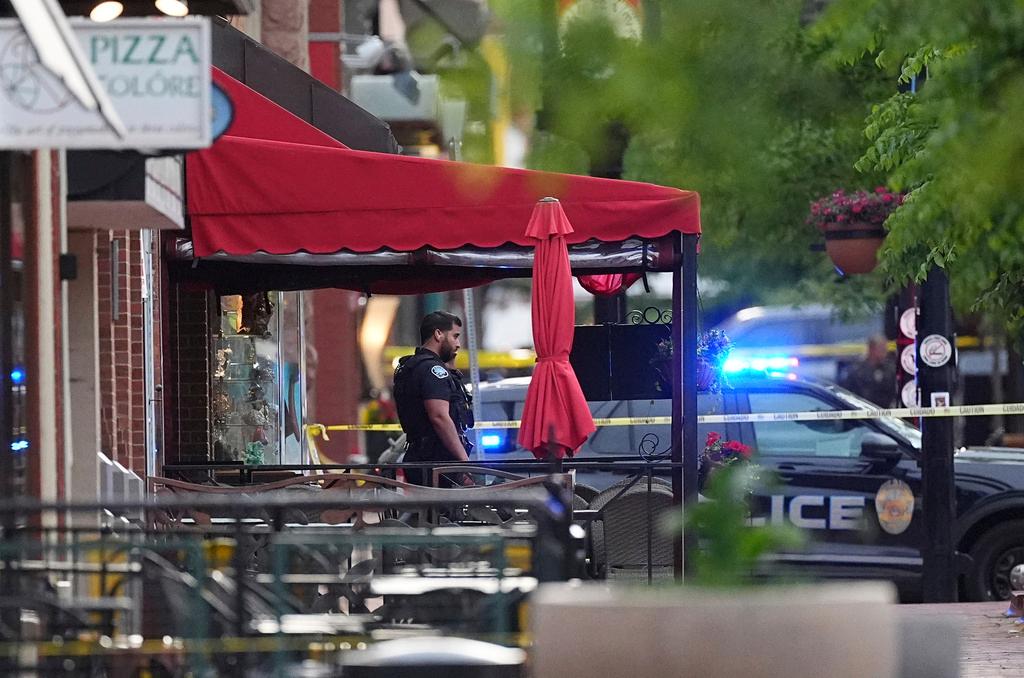
The Egyptian man accused of firebombing marchers on the Pearl Street Mall earlier this month tried to first purchase a handgun in November — but was denied because he didn’t have legal status to be in the United States.
Within minutes of that attempted gun purchase at a store in Colorado Springs, an automatic email notification was sent from the Colorado Bureau of Investigation to the U.S. Department of Homeland Security advising them that a person without legal immigration status attempted to buy a firearm in Colorado.
But there is no indication that anyone from Immigration and Customs Enforcement took action on that notification, either then or anytime this year, until after Mohamed Sabry Soliman, 45, threw Molotov cocktails injuring 15 people in Boulder on June 1.
The revelation, confirmed by the Colorado Bureau of Investigation on Tuesday, contradicts a central talking point U.S. Rep. Gabe Evans made Monday while complaining about Colorado’s laws that prevent some information sharing between state and local governments and federal immigration officials.
“I can’t help but wonder if this attack might have been prevented had the Colorado Bureau of Investigation, which is who does the background checks for firearm purchases in Colorado, had been able to flag that for one of the multiple different entities that have been set up to share that information and prevent something like this from happening,” Evans said at a press conference Tuesday morning. “This is a tragedy that occurred because of failed politics, and so thoughts and condolences are important, but they are not enough.
CBI confirmed on Tuesday that Soliman attempted to purchase a handgun at Scheels All Sports in Colorado Springs on Nov. 22, 2024. He never appealed this denial, CBI said, but he tried again on Dec. 30, 2024 to obtain a concealed handgun permit through the state agency and the El Paso County Sheriff’s Office. He was denied then, too.
When asked by CPR News about the CBI’s email to federal officials, Evans said the bureau hadn’t handled the situation “in a meaningful way” because it did not also alert Colorado’s anti-terrorism center.
A spokesperson for Evans, Delanie Bomar, went further, saying the CBI has “major quality control issues under [Democrats], so until we know that accurate, complete, and actionable info was relayed, the comment still stands.”
And Bomar re-emphasized Evans’ central complaint, even after learning Colorado law enforcement had notified federal immigration officials.
“This should’ve set off alarms on multiple levels,” Bomar said in a statement. “The fact that Soliman was able to continue living in Colorado is proof of Democrats’ weak immigration policies and proof that the attack might have been prevented if the previous Administration’s weak border policies and Colorado’s sanctuary state laws impeded on the ability to properly address this man before he did harm.”
Soliman entered the U.S. in 2022 on a tourist visa, which expired in February 2023. He filed for asylum during that time, but it hadn’t been approved by the U.S. government. He was granted temporary work authorization in March 2023, but it also expired. At the time of the alleged crime in Boulder, he and his family were living in the United States without legal status.
“While the CBI can’t say directly why an individual’s application might be denied, the CBI can acknowledge applications can be denied based on someone’s immigration status,” said Rob Low, a spokesman for the state agency. “Under those circumstances, the CBI will send ICE an electronic notification. Someone who is in the U.S. legally with no disqualifying criminal history is eligible to purchase a firearm in Colorado.”
The Department of Homeland Security did not respond to questions about why they didn’t probe Soliman’s attempted purchase or how, more broadly, they approach immigration enforcement investigations through the National Instant Criminal Background Check System, which tracks and notifies authorities when people without legal status attempt to buy guns.
ICE officials have complained repeatedly about Colorado laws that prevent some information sharing between state and local governments and immigration authorities. But county sheriff’s departments routinely notify ICE before the release of inmates on bond or after sentencing and the agency fails to pick them up, saying they didn’t have time to get agents there. State law also allows exceptions to information-sharing restrictions for criminal investigations, although the extent of that carve-out is being debated in court.
The state and most of its counties were recently included on a list of “sanctuary” jurisdictions that the Trump administration has threatened to use as the basis for sanctions, including withholding federal funding for some projects.
Colorado officials have pushed back on that characterization, pointing out that the state and its jurisdictions comply with all applicable federal laws. The list has since been taken down.
CPR’s Caitlyn Kim contributed to this report.
- Multiple people burned in apparent antisemitic attack on Boulder’s Pearl Street Mall
- Boulder attack suspect makes first appearance in federal court
- More than 1,000 people attend vigil for Boulder attack on ‘a walk just like all our others, until it wasn’t’
- Federal judge issues order stopping the deportation of family of man charged in Boulder firebombing
- Two resolutions in DC paint different views of Boulder attack







